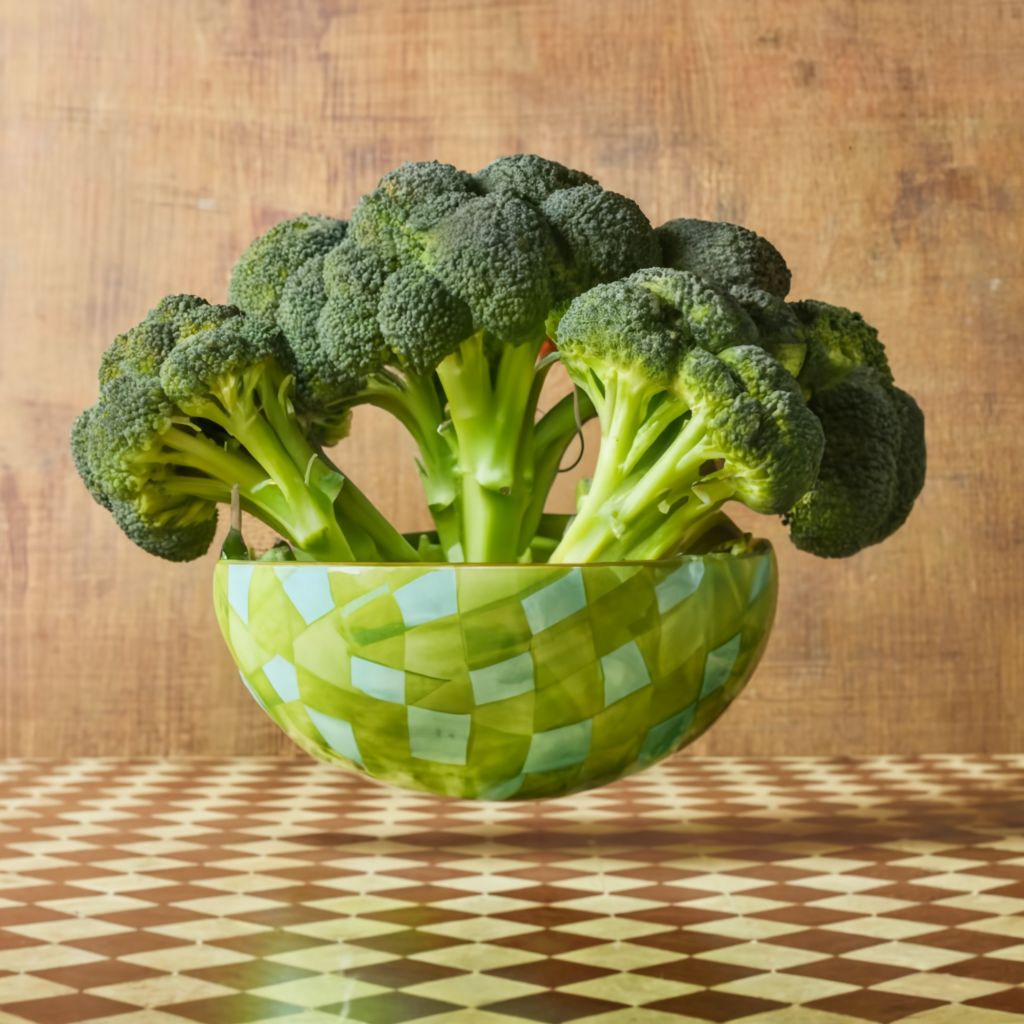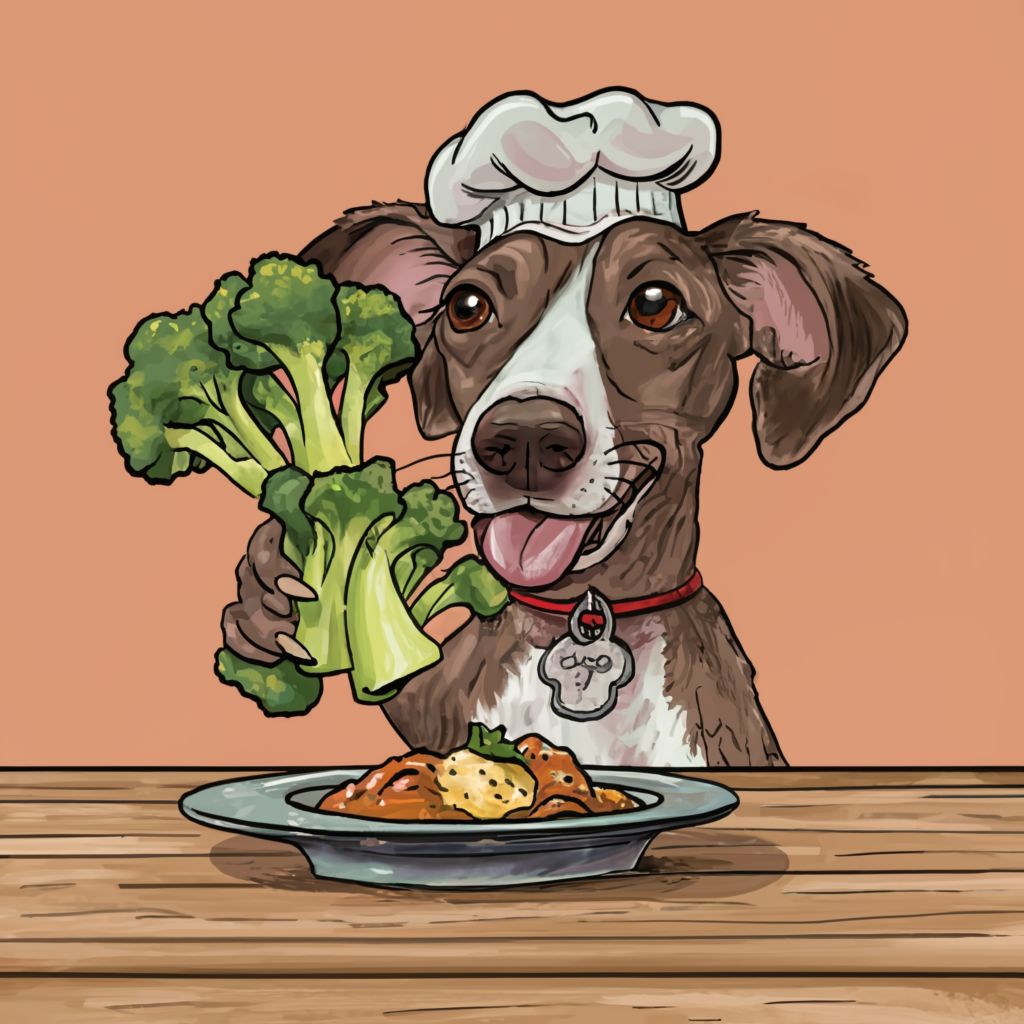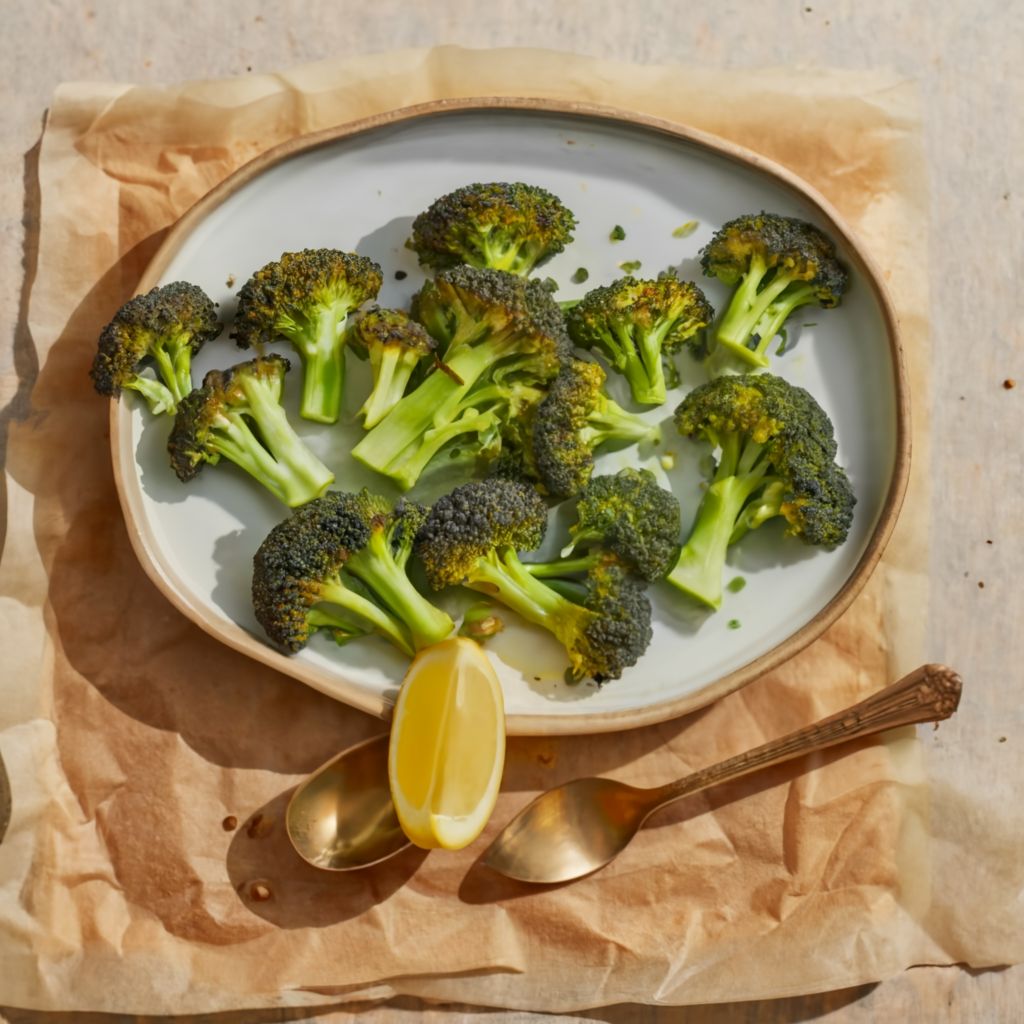can dogs have broccoli: Safe or Risky Greens?

can dogs have broccoli: Safe or Risky Greens?
Can dogs have broccoli? Like cauliflower, broccoli is a close relative of the vegetable family, but with a bright green hue. Like siblings sharing similarities but distinct tastes, cauliflower and broccoli have similar nutritional profiles. . and appearance. However, the big question remains: Is broccoli safe for our furry friends? We’re going to explore this question head-on to make sure every pet owner understands if broccoli is a good supplement for their dog.
Is broccoli safe for dogs to eat?
Many pet owners are curious about the safety of broccoli, which is a well-known source of vitamins and minerals that humans share. However, they may be unaware as to whether their pets can consume it or not. Is this statement supported by current research? Let’s delve into this question to find out if broccoli is a safe and beneficial addition to your dog’s diet.
Can dogs eat broccoli without any negative effects?
We enjoy many foods that are healthy for us, but can pose a danger to our furry companions. Although not commonly consumed, broccoli is a unique source of beneficial nutrients for dogs. When served in moderation, dogs can eat broccoli without negative effects. Before introducing broccoli to your dog’s bowl, it’ll be helpful to know what are the appropriate and inappropriate actions to take.
What are the health benefits of feeding broccoli to dogs?
Feeding broccoli to dogs can bring several health benefits, mainly due to its nutrient-rich composition. By consuming broccoli, you can gain access to vitamins such as vitamin C, vitamin K, and vitamin A, which are beneficial for dogs’ health and well-being. In addition, broccoli contains fiber, which can aid digestion and improve digestion. In addition, broccoli contains antioxidants such as beta-carotene and sulforaphane, which can help reduce inflammation and protect against certain diseases. Adding broccoli to your dog’s diet in moderation can be beneficial for both their health and body.
Are there any risks or dangers associated with giving broccoli to dogs?

Although broccoli offers many health benefits for dogs, it is important to be aware of the potential risks and dangers associated with its consumption. Consumption of large quantities of isothiocyanates, which are nutrient-rich vegetables like broccoli, can cause digestive problems in some dogs. In addition, broccoli contains fiber that can be difficult for some dogs to digest, which can cause bloating, gas, or diarrhea if consumed in excess. Moreover, broccoli florets have small, inedible pieces that can be choking hazards, particularly for small breeds or dogs that have difficulty digesting food. It is crucial to limit broccoli intake in dogs and track any negative effects by providing them with sufficient amounts. If your dog has digestive problems after eating broccoli, consult your vet.
Can dogs eat broccoli raw, or does it need to be cooked?
Dogs can eat broccoli both raw and cooked, but there are things to consider with each option. Raw broccoli retains more nutrients, including vitamin C and enzymes, which can be beneficial for dogs. However, raw broccoli can be difficult for some dogs to digest, leading to indigestion or discomfort. Cooking broccoli can make it easier for dogs to digest and help break down the tough fibers, but it can also reduce some of its nutritional content. Ultimately, whether you feed your dog raw or cooked broccoli depends on your dog’s individual preferences and digestive tolerance. When introducing raw broccoli, it’s best to start small and monitor your dog for possible side effects.
How much broccoli is too much for a dog to eat?

Balance is key when feeding broccoli to dogs.Despite its numerous health benefits, broccoli should be consumed in moderation as it provides essential vitamins, minerals, and fiber.When a dog consumes too much broccoli, it can cause digestive problems like gas or diarrhea and frequent bloating due to its high fiber content.Moreover, broccoli is only a small part of your dog’s diet, as it must be fed ideally and in the right proportions to meet all his nutritional needs. As a general rule, treats and snacks, including broccoli, should not make up more than 10% of your dog’s daily calories. Always consult your veterinarian to determine the appropriate amount of broccoli for your dog based on factors such as size, age and health.
What should I do if my dog eats broccoli and shows signs of discomfort or illness?
If your dog is experiencing pain or illness after eating broccoli, it’s crucial to take action and ensure its safety. Here’s what you can do:
- Monitor signs of indigestion, such as vomiting, diarrhea, bloating, or an upset stomach, in your dog.
- Eliminate broccoli from the diet: If you suspect that broccoli is causing y
- our dog discomfort, don’t . introduce broccoli and other new foods until symptoms resolve.
- Give water: Make sure your dog has fresh water to keep him hydrated, especially if he is vomiting or has diarrhea.
- Contact your veterinarian: If your dog’s symptoms dog resolves. persists or worsens, or if you are concerned about his health, it is very important to seek guidance from your veterinarian.Based on your dog’s particular circumstances, they can provide tailored recommendations and treatment options.
- Take Care: Follow your doctor’s advice, which may involve making dietary changes, prescribing medication, or conducting additional tests to determine the cause of the disease. your dog’s symptoms.
If your dog has been affected by eating broccoli, these steps can help.
Before introducing any new food to your dog’s diet, it’s a good idea to consult with your veterinarian. Your dog’s health, size, weight, and dietary requirements can be taken into account when seeking advice from them. Additionally, it’s important to be aware of potential choking hazards — unpopped kernels,
